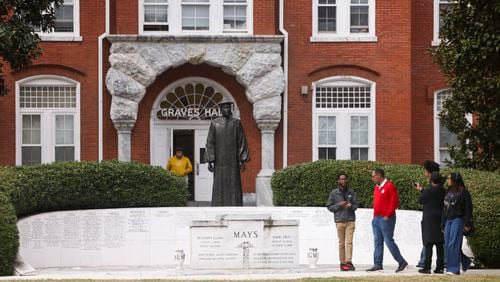A prolific Atlanta nightclub owner and one-time political candidate plead guilty to stealing money from the city’s job agency.
Kevin Edwards, an entrepreneur known for nightclubs like Krave and Aurum Lounge, entered his plea in federal court for the Northern District of Georgia on Tuesday.
The city, on behalf of the Atlanta Workforce Development Agency, has also agreed to pay $1.86 million in a civil settlement claiming it provided lax oversight to local companies for phony job-training, according to the U.S. District Attorney's Office for the Northern District of Georgia.
“This lack of controls set the stage for Edwards and his companies to abuse the program and steal funds that were intended to help citizens develop skills and find jobs,” said U.S. Attorney John A. Horn.
Following the Great Recession, the agency used hundreds of thousands of dollars in federal emergency funds for job education and paid companies for bogus workers or non-existent training, an Atlanta Journal-Constitution investigation found.
The civil settlement alleged that between 2010 and 2014, the agency falsely claimed it was in compliance with Department of Labor regulations related to the federal grants.
In a statement about the case, the U.S. Attorney’s Office for the Northern District alleged the workforce agency gave money to companies that “enrolled existing employees instead of new job seekers, failed to provide any training to the OJT enrollees, and hired highly skilled employees, including individuals with professional licenses, who were not eligible for OJT.”
— Please return to AJC.com for updates.
About the Author






